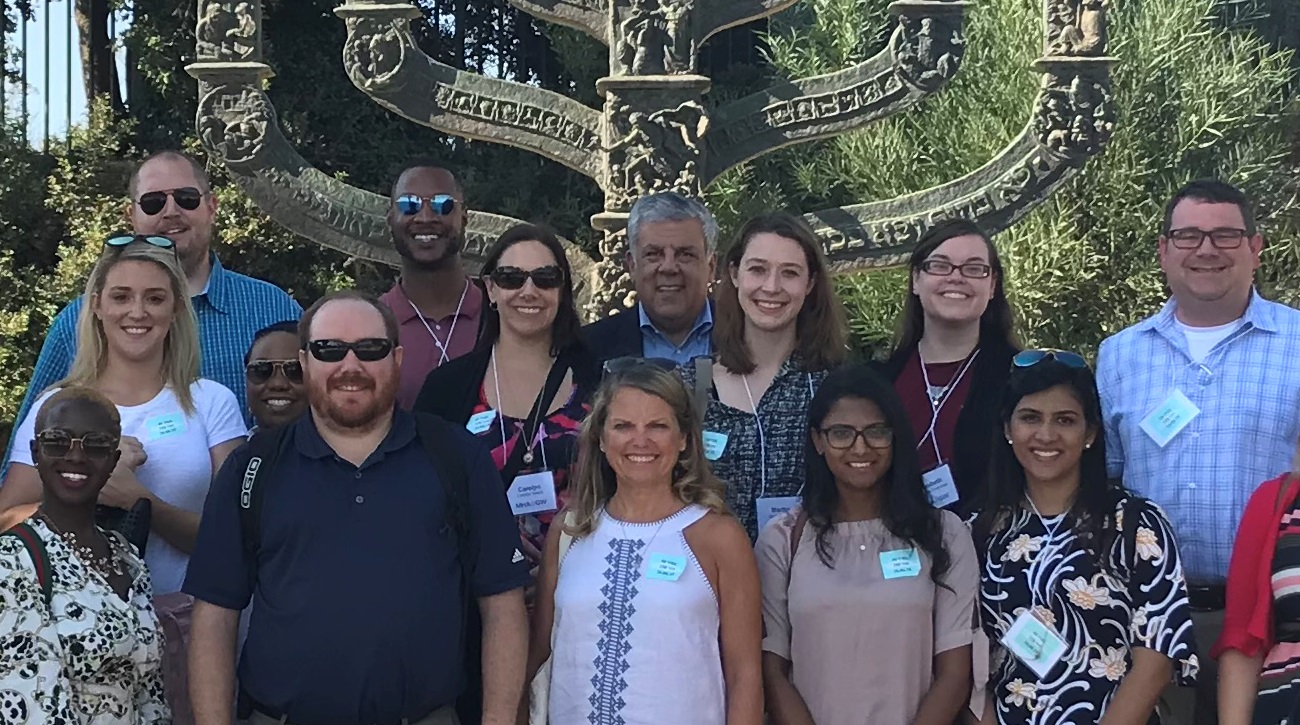The George Washington University Milken Institute School of Public Health Department of Health Policy and Management’s Executive Master of Health Services Administration (MHA@GW) program is now fully accredited by the Commission on Accreditation for Healthcare Management Education (CAHME). CAHME’s board of directors voted to approve the initial accreditation for the MHA@GW program. The accreditation is retroactive to fall 2017 and runs through fall 2020.
“CAHME upholds high standards for graduate health management education, and the retroactive accreditation affirms the value of the Department of Health Policy and Management’s online MHA program,” says Leonard Friedman, the MHA@GW program’s director. MHA@GW delivers a rigorous curriculum, and the accreditation recognizes our program’s pursuit of continuous quality improvement. The program’s 123 graduates are serving as administrators at sites all across the country.
CAHME is the only organization that accredits individual academic programs that grant master’s degrees in healthcare management, and the organization is responsible for promoting, evaluating, and improving graduate healthcare management education in the United States and Canada.
Designed for adult learners
The MHA@GW program is designed to meet the needs of adult learners who are already working full time in healthcare organizations across the nation. It follows a hybrid format, with 41 of the 50 degree credits offered in an online format. To obtain the additional 9 credits, students meet up in-person in “immersion” experiences four times over the two years needed to complete the program. “The reason for the in-person requirement was two-fold. At the time, CAHME required a minimum of 120 face-to-face hours for accreditation and the assumption from the beginning was that we were going to seek accreditation. Additionally, the faculty did not believe that highly effective health sector leaders could obtain the competencies needed in a purely online format,” Friedman explains.
“Meeting one another during four intensive immersions facilitates developing the interpersonal skills vital for healthcare leadership,” Friedman says. The first two immersions concentrate on the broad themes of healthcare leadership and ethics. During the third immersion, the focus is on analyzing health systems. Students spend a week examining a high functioning healthcare system in the United States or alternatively, traveling outside the US to study an international healthcare delivery system. For example, 30 MHA@GW students recently completed a trip to Israel to complete their third immersion requirement. The final immersion revisits the principles of healthcare leadership and asks students to present their organization research project.
The program’s online courses are also innovative. “Rather than simply duplicate current courses offered in the residential MHA degree, faculty chose to craft eight integrated learning modules,” Friedman says. Each modules was developed by between 2-3 faculty and combines complementary content areas into a single 10-week long course. The eight modules include: management and strategy; medical informatics and decision management; financial management; community engagement; health economics and quantitative methods; quality improvement; health law and policy; and systems thinking and learning (capstone).
Every MHA@GW graduate prepares a leadership portfolio to documents their attainment of the program’s 31 competencies. In addition, each student completes a nine-month long organizational research project. Examples of the organization research projects include:
- Aging in Place: An Applied Research Study Project
- Using Quantitative and Qualitative Analysis to Approach Value Based Care
- Improving Quality of Care and Clinic Workflow
- Cost Containment and Quality Improvement in Maryland Hospitals
- Evaluation of the VA PACT Model in the VA Pacific Islands
The MHA@GW program is the second hybrid format executive MHA to achieve a successful accreditation. The program also accredited by the Council on Education for Public Health (CEPH).


